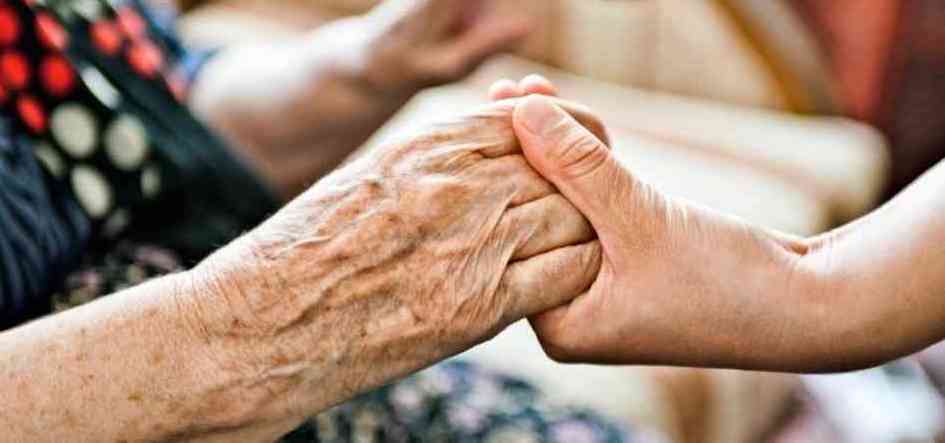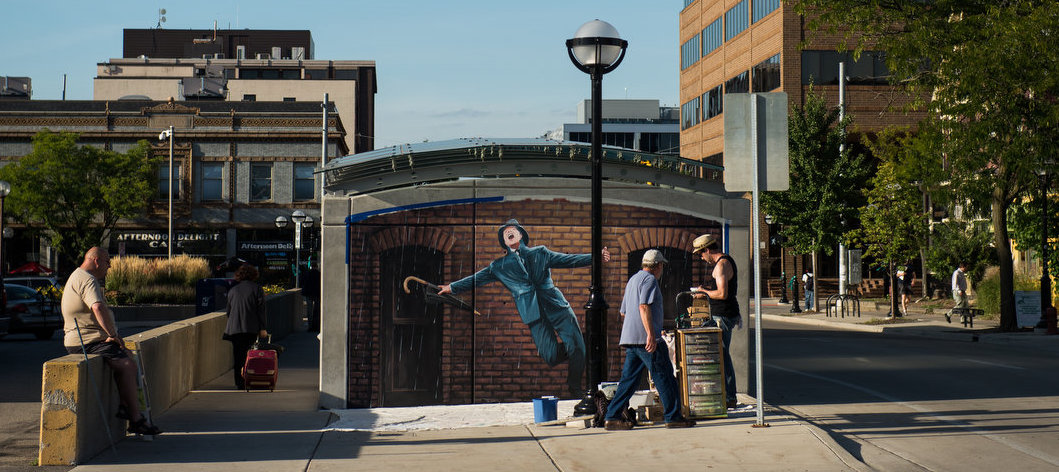Field Notes
How do you promote healthy and fulfilling aging during a pandemic?
In 2019 we partnered with The Ann Arbor Area Community Foundation to engage older adults and examine aging-related systems across Washtenaw County, MI. The goals of this project are to deeply understand older adults’ daily lived aging experience, profile how systems are supporting and shaping that experience, identify areas and levers for improvement, and guide the Foundation’s future investments in healthy & fulfilling aging. Written by Anand his series shares insights and learnings as this work continues in 2020/21.
UPDATE: We set out to map healthy aging in Washtenaw County, Michigan in January 2020, which seems like a world away from the one we are living in today. It would be an understatement to say that the current pandemic affects healthy aging. Our intentions to shadow seniors and learn more about their experiences in-person will have to wait until a later date. For now, we are setting up more virtual methods to capture the effects of extreme scenarios like this one on communities and on our work. While we see long-standing barriers to people’s health and lifelong success intensify and new ones arise, we also hope to illuminate new assets and opportunities to build supports for the longer term.

Living healthy and fulfilling lives in later adulthood was already hard. And then a pandemic happened.
The Original Healthy and Fulfilling Aging Plan
In early February, nearly 20 cross-sector leaders in healthy aging and older community members told us what healthy and fulfilling aging looks like:
“Remember, aging is a team sport: we are all aging, all the time, and build wisdom and momentum along the way. Older adults are among our most civically and politically active groups. And yet, healthy aging is prioritized less than other issues, insufficiently supported by core systems like transportation and housing, and hindered by negative stereotypes seeing older adults as an ‘other’ group that requires society’s charity just to survive.”
We had just gotten ready to map the county’s aging systems by immersing ourselves in the lives of older residents across Washtenaw County. The idea was to capture the diverse, daily lived experience of aging and how systems factor in that experience. We were to shadow people (literally follow step-by-step through their day) and conduct deep interviews. We were also gearing up to recruit older adult partners to help shape the process, capture their own experiences through photos and video, interview their peers, and join us in reviewing the results. This would all complement our partner the Ann Arbor Area Community Foundation’s (AAACF) work to coordinate aging services, expand supports for family caregivers, and other aging efforts.
STOP. Pandemic Coming.
Now in the Coronavirus pandemic, aging with health and fulfillment is now a lot harder, and the negative narrative around older adults is in full effect.
The only older adult references I see in the media highlight vulnerability, the nursing home death trap, and the latest casualty count. A recent nationwide survey showed that 61% of older adults are concerned about misconceptions or stereotypes spreading as a result of the pandemic, and less than half (49%) feel valued by society during this crisis.
When COVID-19 hit, we issued a cease and desist on our plans to spend extended time in close proximity with the virus’ most affected demographic. We Zoomed (it’s a verb) with our local working group to take stock and plan our next steps. The group includes cross-sector representation from local county and municipal government agencies, health systems, nonprofit and private service providers, philanthropy, academia, and older residents.
We were prepared to hear the worst, and there is no doubt the worsening of long standing aging issues like economic security, transportation, and social isolation. If you feel shut in now, this was daily life for many older adults back during “normal” times.
Opportunity in Crisis.
Our partners also shared the other side: Armies of retired health care workers returning to serve, putting themselves at risk and often without pay. Grassroots neighborhood efforts by older adults to check in on each other. And service providers appreciating their senior volunteers who were now forced to shelter in place. I have seen the same in my own community of Silver Spring, MD.
The same survey above found that 68% of older adults did feel that people are now more sensitive to the needs of older adults. Between numerous national and local surveys, and service providers checking in with their clients, there are indeed many efforts to check on older adults’ experience in this moment.
While in crisis, we were also seeing a number of “crisis advantages” that should be embedded for the longer term, such as new collaborations, service innovations, and streamlined access to vital services, public benefits, and resources.
In consultation with our partners, we adapted our approach. Our role would now be to still work with older residents to help capture and share the aging experience, only virtually and narrowing in on this moment while keeping the longer term in mind. Given the many existing efforts to gauge older adult needs, we discussed the need for our own effort to highlight both challenges and also the opportunities, keep an eye on the long game, and recognize the assets that older adults bring to their communities.

A New Life (and Need) for Community Engagement
We have now spent the past few weeks calling older residents across Washtenaw County. Nearly thirty residents are volunteering to participate in interviews, help shape our research, capture their daily aging experience via photo and video, and conduct interviews of their peers. Some are even attempting to recruit their peers to conduct further research on the effort’s behalf.
At a time when visits with family and friends are restricted and grocery shopping can be a life threatening experience, older adults are jumping on the opportunity to unleash a lifetime of assets. During a crisis which has led some to write off older adults as a group, we see the exact opposite. The work also aligns well with what we have been hearing is critical for healthy aging at all times – an individual sense of purpose and social interaction – both of which have been under assault by the now infamous virus.
We are still very early on in our adapted virtual approach, but for us the experience so far already emphasizes the need to involve people in communities, and to do it genuinely and with humility. While many barriers and excuses can hinder it, we believe that beginning with a commitment first can drive innovative ways to make it happen. And when we do make it happen, everyone benefits.
If all goes well, my next post will share the results of what we learn and what to do about it. Until next time!
With Us
